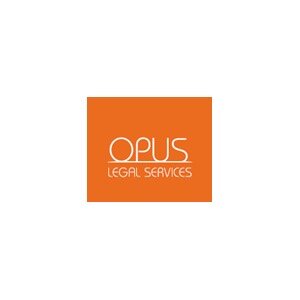Best Land Use & Zoning Lawyers in Iceland
Share your needs with us, get contacted by law firms.
Free. Takes 2 min.
Free Guide to Hiring a Real Estate Lawyer
Or refine your search by selecting a city:
List of the best lawyers in Iceland
About Land Use & Zoning Law in Iceland
Land Use & Zoning Law in Iceland is governed by a comprehensive framework designed to ensure the sustainable development and management of the nation's land resources. As Iceland is a country rich in natural beauty and geological diversity, land use policies are crucial for balancing development with environmental conservation. Regulations focus on residential, commercial, agricultural, and industrial land use while protecting natural landscapes and heritage sites. Local municipalities play a significant role in enforcing zoning laws, reflecting local needs and priorities within the national framework.
Why You May Need a Lawyer
There are several circumstances where individuals or businesses may seek legal advice in the realm of land use and zoning in Iceland:
- Property Development: Navigating approvals for new constructions or modifications to existing structures.
- Zoning Disputes: Resolving conflicts arising from current zoning regulations, such as disputes with neighbors or authorities.
- Compliance Issues: Ensuring adherence to environmental and zoning regulations to avoid fines or legal actions.
- Land Acquisition: Addressing legal queries regarding the purchase or sale of property, especially for unique or protected areas.
- Environmental Concerns: Legal assistance in proposals involving land that may impact the environment or heritage sites.
Local Laws Overview
Icelandic land use and zoning laws are predominantly influenced by the Planning Act, which establishes guidelines for both national and local planning. Key features include:
- Planning Hierarchy: A tiered system of national, regional, and municipal planning ensures cohesive land management policies.
- Municipal Roles: Local councils have significant authority to define zoning laws within their jurisdiction, tailored to community needs.
- Public Participation: The public has the right to participate in the planning process, offering transparency and community engagement.
- Environmental Considerations: Any development proposals must consider their impact on Iceland's fragile ecosystem.
- Zoning Categories: Defined zones (residential, commercial, industrial, agricultural) each have specific rules and restrictions.
Frequently Asked Questions
What is zoning, and why is it important in Iceland?
Zoning is a legal tool used to control land use and development, helping to ensure that land resources are used sustainably and harmoniously with their surroundings. In Iceland, zoning preserves natural landscapes while allowing for responsible development.
How can I find out the zoning classification of a specific property?
You can obtain zoning information from the local municipal planning office, which maintains detailed zoning maps and classifications for properties within its area.
What should I do if I want to change the use of my land?
For land use changes, you need to apply for a permit through your local municipal authority. It often involves public notice and review by planning officials to ensure compliance with existing regulations.
Can I challenge a zoning decision made by the local authorities?
Yes, you can appeal a zoning decision through legal channels, such as administrative appeals or judicial review, depending on the nature of the disagreement.
Are there restrictions on building in rural and natural areas?
Yes, building in rural and natural areas is highly regulated to protect Iceland's environment. Stringent requirements and permits are necessary for such developments.
What is the process for obtaining a building permit?
The process involves submitting detailed plans to your local municipality, where they are evaluated for compliance with zoning laws, building codes, and environmental considerations.
What happens if I build without the necessary permits?
Building without permits can lead to fines, legal actions, and potentially the demolition of unauthorized structures. It's essential to obtain all necessary approvals beforehand.
Who regulates land use in geothermal and volcanic areas?
Geothermal and volcanic areas are subject to additional regulations due to their significance and potential hazards. The National Planning Agency oversees such sensitive regions.
Can existing buildings be modified or expanded?
Modifications or expansions typically require permits and must conform with current zoning laws. Consulting with the local planning authority is advisable before proceeding.
Are there any incentives for sustainable or green building practices?
Yes, Iceland encourages sustainable development, and incentives may be available for green building practices that align with environmental regulations.
Additional Resources
For further information and assistance regarding land use and zoning in Iceland, consider the following resources:
- National Planning Agency: They provide resources and guidance on national planning policies and regulations.
- Local Municipality Planning Offices: Contact them for specific zoning laws and permit applications pertinent to your area.
- Icelandic Association of Local Authorities: Offers support and information regarding municipal planning and zoning.
- Environmental Agency of Iceland: Provides guidelines ensuring developments comply with environmental standards.
Next Steps
If you need legal assistance in the field of land use and zoning in Iceland, consider the following steps:
- Assess your specific situation and determine the legal questions or issues you need to address.
- Consult with a legal professional specializing in land use and zoning to discuss your case and explore potential solutions.
- Gather necessary documentation, such as property plans, previous correspondences with municipal offices, and any relevant permits or applications.
- Consider reaching out to local municipalities for preliminary advice or clarification on local zoning laws and procedures.
- Stay informed about any changes in regulations that may impact your situation by following updates from relevant governmental agencies.
Lawzana helps you find the best lawyers and law firms in Iceland through a curated and pre-screened list of qualified legal professionals. Our platform offers rankings and detailed profiles of attorneys and law firms, allowing you to compare based on practice areas, including Land Use & Zoning, experience, and client feedback.
Each profile includes a description of the firm's areas of practice, client reviews, team members and partners, year of establishment, spoken languages, office locations, contact information, social media presence, and any published articles or resources. Most firms on our platform speak English and are experienced in both local and international legal matters.
Get a quote from top-rated law firms in Iceland — quickly, securely, and without unnecessary hassle.
Disclaimer:
The information provided on this page is for general informational purposes only and does not constitute legal advice. While we strive to ensure the accuracy and relevance of the content, legal information may change over time, and interpretations of the law can vary. You should always consult with a qualified legal professional for advice specific to your situation.
We disclaim all liability for actions taken or not taken based on the content of this page. If you believe any information is incorrect or outdated, please contact us, and we will review and update it where appropriate.
Browse land use & zoning law firms by city in Iceland
Refine your search by selecting a city.













